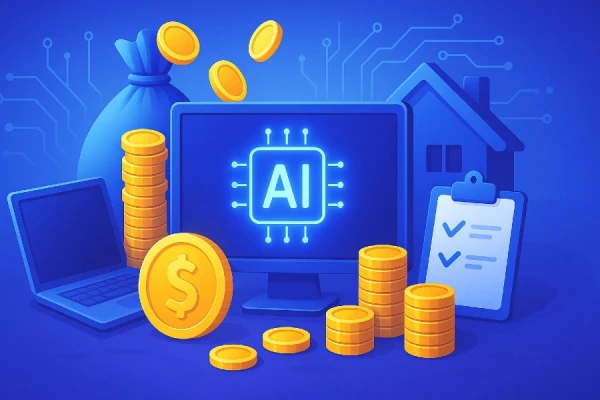Amidst the relentless flood of digital information, we often find ourselves trapped in endless scrolling. New notifications pop up every second, news cycles endlessly, and viral content fiercely competes for attention. Yet, behind this ease of access and rapid consumption lies mental fatigue and a loss of meaning. This phenomenon gives rise to the need for slow media, an approach inviting us to slow down, reflect, and truly savor every piece of information we consume. Slow media is more than a trend; it is a critical response to a digital culture demanding instant everything. This article discusses why slowing down content consumption matters and how slow media can serve as a remedy in a world that refuses to pause.
What Is Slow Media?
Slow media is a movement emphasizing the importance of quality, depth, and reflection in information consumption. Unlike fast media that prioritizes speed and virality, slow media encourages readers to pause, contemplate, and genuinely understand the messages conveyed. This concept draws inspiration from the slow food movement, which opposes fast-food culture to promote health and the enjoyment of flavors.
Why Are We Trapped in a Fast-Scrolling Culture?
Digital technology has transformed how we interact with information. Social media algorithms are designed to keep us scrolling endlessly, creating the illusion that we must always stay connected and never miss the latest news. As a result, we tend to consume information superficially, without time to digest or find meaning. The phenomenon of fear of missing out (FOMO) exacerbates this, making us restless if we don’t keep up with the continuous flow of information.
The Negative Impacts of Rapid Content Consumption
- Mental Fatigue: Excessive exposure to information can cause stress, anxiety, and mental exhaustion.
- Loss of Meaning: Quickly consumed information often only registers at the surface without deep understanding.
- Declining Concentration: Habitual shifting between contents reduces our ability to focus and concentrate.
- Superficiality: We are prone to fixate on sensational headlines without verifying truth or context.
Slow Media: An Oasis Amidst the Noise of the Digital World
Slow media offers a healthy alternative for mind and soul. By slowing down content consumption, we are invited to:
- Read Mindfully: Enjoy each sentence, reflect on its meaning, and draw lessons from what we read.
- Choose Quality Content: Prioritize credible, in-depth information relevant to our personal needs.
- Reduce Distractions: Set aside dedicated time to read or watch without notification interruptions.
- Cultivate Empathy and Understanding: Slow reading helps us better grasp others’ perspectives and broaden our insights.
Slow Media and the Philosophy of Meaningful Media
The philosophy behind slow media aligns closely with Makna Media’s vision, which emphasizes depth, reflection, and meaning in every piece of content. Amid the overwhelming flow of information, Makna Media serves as a space to slow down, ponder, and uncover the meaning beneath each story. By adopting slow media principles, Makna Media invites readers not just to consume information, but to process it into knowledge and wisdom.
How to Incorporate Slow Media into Daily Life
- Curate Content: Select media and platforms offering quality and relevant content.
- Schedule Reading Time: Dedicate specific time daily to read or watch content slowly.
- Turn Off Notifications: Minimize distractions by disabling alerts while enjoying content.
- Reflect After Reading: Take time to ponder what you’ve read and how it influences your thinking or actions.
- Engage in Meaningful Discussions: Share and discuss enriching content with friends or communities to deepen understanding.
Case Studies: The Success of Slow Media Worldwide
Some media outlets globally have successfully embraced slow media principles. For example, Deliberate Media in Germany publishes only one article per day, while Longreads curates high-quality essays and long-form stories. In Indonesia, platforms like Makna Media highlight in-depth and reflective content, offering an alternative to the noise of mainstream media.
Why Is Slow Media Relevant in the Digital Era?
In an era where speed often takes precedence, slow media reminds us that meaning and depth cannot be instantly obtained. Slow media helps maintain mental health, enhances life quality, and enriches knowledge. By slowing our content consumption, we transform from mere information consumers into wise learners.
Conclusion
Lorem ipsum dolor sit amet, consectetur adipiscing elit, sed do eiusmod tempor incididunt ut labore et dolore magna aliqua. Ut enim ad minim veniam, quis nostrud exercitation ullamco laboris nisi ut aliquip ex ea commodo consequat. Duis aute irure dolor in reprehenderit in voluptate velit esse cillum dolore eu fugiat nulla pariatur. Excepteur sint occaecat cupidatat non proident, sunt in culpa qui officia deserunt mollit anim id est laborum.
Closing
Slowing down does not mean falling behind; rather, it creates space to grow and better comprehend the world. Let us collectively cultivate a slow media culture for the sake of deeper knowledge and improved life quality. Enjoy every meaningful moment of reading.







